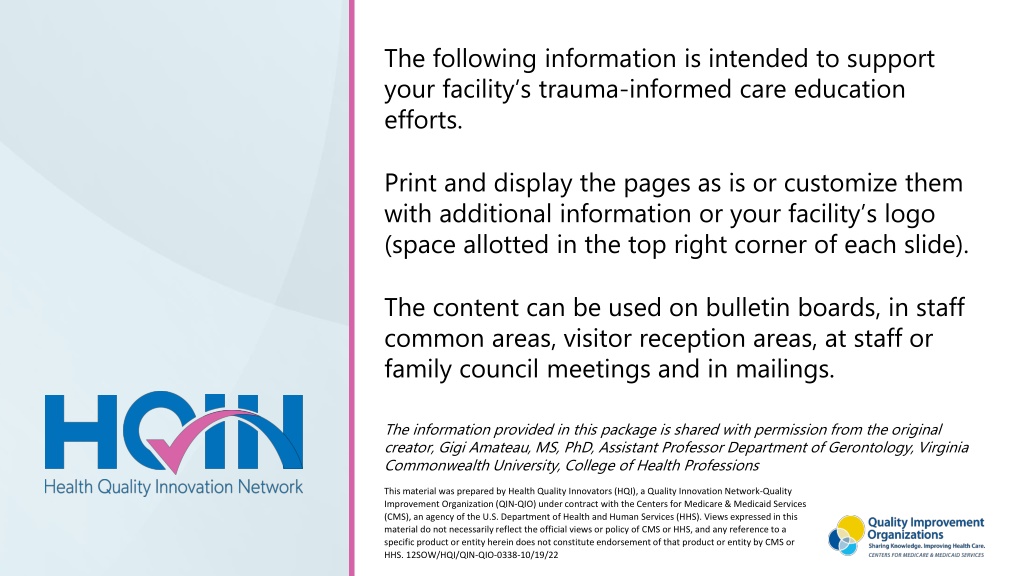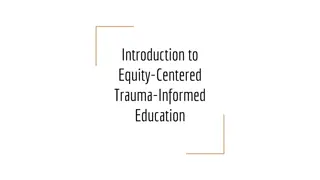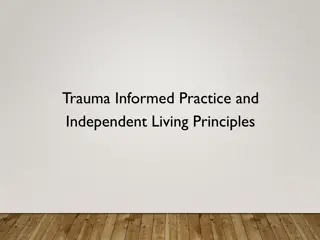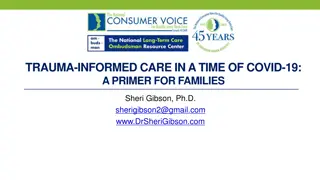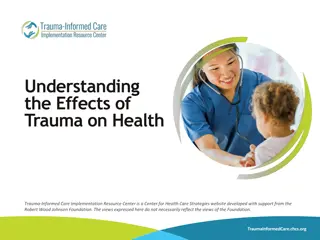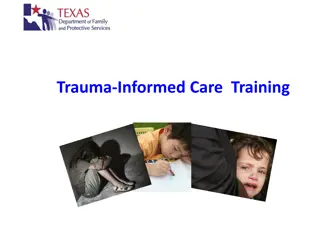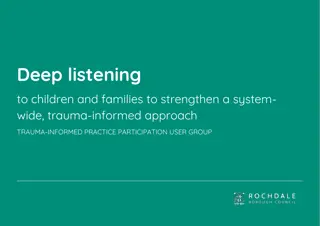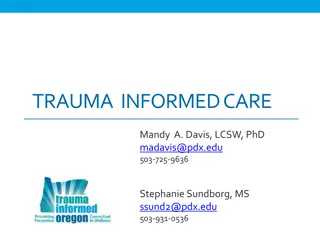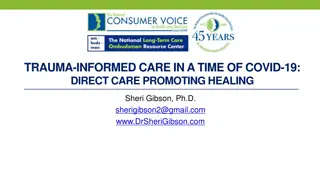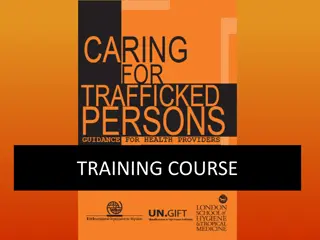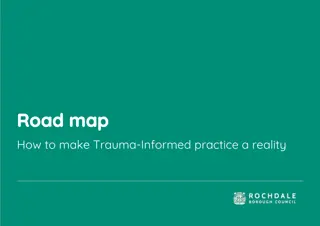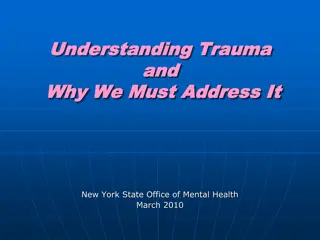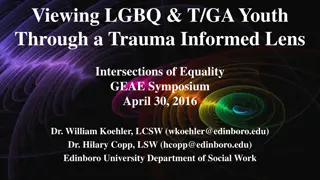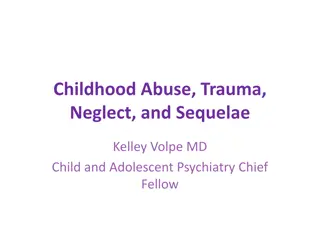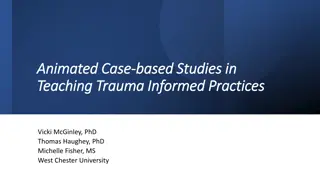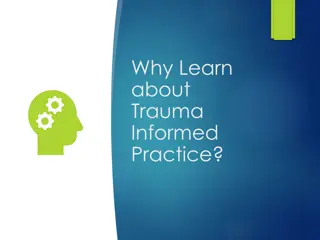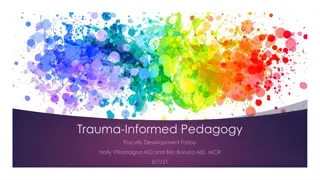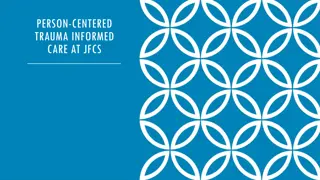Understanding Trauma and Implementing Trauma-Informed Care
Explore the concepts of trauma, trauma-informed care, and the impact of traumagenic experiences on individuals with this comprehensive educational package. Learn about the sources of trauma, nervous system responses, and how to create a culture of trauma-informed care in your facility. Utilize the provided resources to enhance staff knowledge and support residents in a more compassionate and understanding manner.
Download Presentation

Please find below an Image/Link to download the presentation.
The content on the website is provided AS IS for your information and personal use only. It may not be sold, licensed, or shared on other websites without obtaining consent from the author. Download presentation by click this link. If you encounter any issues during the download, it is possible that the publisher has removed the file from their server.
E N D
Presentation Transcript
The following information is intended to support your facility s trauma-informed care education efforts. Print and display the pages as is or customize them with additional information or your facility s logo (space allotted in the top right corner of each slide). The content can be used on bulletin boards, in staff common areas, visitor reception areas, at staff or family council meetings and in mailings. The information provided in this package is shared with permission from the original creator, Gigi Amateau, MS, PhD, Assistant Professor Department of Gerontology, Virginia Commonwealth University, College of Health Professions This material was prepared by Health Quality Innovators (HQI), a Quality Innovation Network-Quality Improvement Organization (QIN-QIO) under contract with the Centers for Medicare & Medicaid Services (CMS), an agency of the U.S. Department of Health and Human Services (HHS). Views expressed in this material do not necessarily reflect the official views or policy of CMS or HHS, and any reference to a specific product or entity herein does not constitute endorsement of that product or entity by CMS or HHS. 12SOW/HQI/QIN-QIO-0338-10/19/22
Trauma-Informed Care: A Culture Approach for Managing Staff and Caring for Residents Brought to you by Health Quality Innovators (HQI) and Your Nursing Home Leaders
Trauma and Related Words Trauma (noun): when our ability to respond to threat is overwhelmed P. Levine Trauma response Trauma- exposed Traumatized? Traumagenic (adjective): describes situation that MAY result in a trauma response (think carcinogenic ) Event/ situation D. Anderson Hooker Adapted from STAR Level 1, Eastern Mennonite University
Sources of Traumagenic Experiences Individual Collective Adverse childhood experiences Intimate partner violence Death or loss important person Abandonment Exposure to war or torture Bullying Relocating to a new home/ housing loss Race-based trauma, ageism and other forms of marginalization and discrimination Poverty Diaspora, exile, statelessness Intergenerational/historical suffering Acute events (COVID-19) Adapted from STAR Level 1, Eastern Mennonite University
Nervous System Responses HYPER-AROUSAL Resilient Zone Window of tolerance FREEZING/ NUMBING Illustrations regarding nervous system informed by Dan Siegel s The Developing Mind (1999), Peter Levine, and Pat Ogden s Trauma and the Body (2006). Adapted from STAR Level 1, Eastern Mennonite University
A Holistic Look at Trauma Brain function Headaches, backaches Stomach aches Appetite changes Cold susceptibility Intestinal issues Sleep changes Fearfulness, anxiety Loneliness Helplessness Dissociation Outbursts Flashbacks Nightmares BIOLOGICAL PSYCHOLOGICAL Apathy Isolation Difficulty trusting Detachment Struggle to find meaning Anger at God Desolation SPIRITUAL SOCIAL
A Holistic Look at Resilience Singing Dancing Laughing Movement Rhythm Sleep Balanced diet Curiosity Imagination Self-soothing Learning BIOLOGICAL PSYCHOLOGICAL A higher power A sense of hope A sense of purpose Connection to nature Reflective writing Positive relationships Belongingness Storytelling SPIRITUAL SOCIAL
